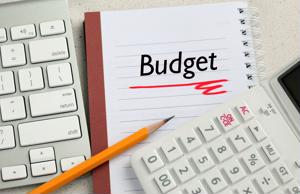
On Tuesday, 19 September 2023, the New South Wales government unveiled a budget that aims to tackle pressing issues such as housing affordability, energy sustainability and childcare enhancements. Here, we explore the significant facets of this budget and its implications for taxpayers.
Prominent features of the 2023 NSW budget
The NSW budget this year is meticulously crafted with several pivotal objectives that resonate with the needs and aspirations of the community:
Revitalising housing infrastructure
The housing sector in NSW has been grappling with skyrocketing prices and rental rates. To curb this, the government has earmarked substantial funds, including:
- $2.2 billion Housing and Infrastructure Plan.
- $224 million Essential Housing Package primarily for regional NSW.
- Up to $30,735 stamp duty discounts for first-home buyers.
- $60 million for new Build to Rent trials.
Energy sustainability and toll relief
To ease the burden on households and promote a cleaner energy future, the government has allocated substantial funds for various initiatives, such as:
- $1.8 billion for renewable energy infrastructure and electric vehicle adoption.
- $60 weekly toll cap for private motorists from 2024, benefiting over 700,000 motorists.
- $1.0 billion to establish the Energy Security Corporation.
- Up to $500 electricity rebate for eligible families and $650 for qualifying businesses in 2023-24.
Childcare and education enhancements
Understanding the pivotal role of early education, the government is investing heavily in early childhood education and care (ECEC), with initiatives like:
- $5.0 billion over 10 years in the Childcare and Economic Opportunity Fund.
- $849.0 million to expand available ECEC services and reduce fees.
- Significant investment in new preschools and support for non-government preschools.
Impact on fiscal health and the strategy for financial equilibrium
While the budget entails substantial expenditure, the government has a strategic plan to maintain fiscal health. The focus is on fostering economic growth through job creation and infrastructure development, thereby generating revenue to offset the increased spending. The NSW government is optimistic about achieving a balanced budget in the coming years, with a keen eye on promoting community wellbeing and economic resurgence.
Housing, energy and childcare at the forefront
The 2023 NSW budget clearly delineates the government's priorities, with a pronounced focus on housing, energy sustainability and childcare enhancements. Residents of NSW can anticipate substantial developments in these sectors, addressing some of the state's most critical challenges.
As taxpayers, staying abreast of these developments and understanding their potential impact on our daily lives is crucial. For more insights and helpful information on financial topics, stay tuned to our blog at WMC Accounting.



